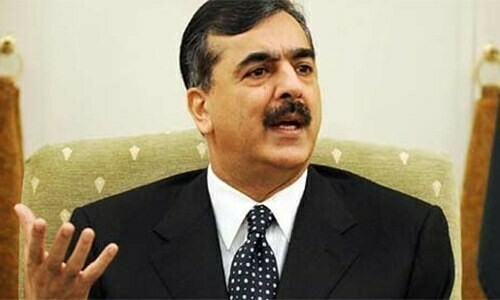THE State Bank of Pakistan’s decision to reverse the process of reducing the cost of bank borrowing has surprised many. The bank has hiked the price of credit by 50bps to 9.5pc in less than three months after having slashed it to 9pc. This is in spite of the fact that the IMF had agreed with the government that the bank would continue to pursue an accommodating monetary policy during the present financial year to “ease the effects of fiscal adjustments” that it had committed itself to in order to borrow money from the lender.
While raising the rate the bank has pointed to risks of inflation, not least because of increasing domestic energy prices, instability in the world oil markets, continued government borrowings for bridging its budget deficit, and pressures on the exchange rate. It fears that the average annual price inflation will soar to 12pc at the end of the present financial year from 7.4pc last year. The rise in price inflation is not unexpected, and the bank was fully aware of the risk in view of the new government’s plans to cut energy subsidies and budgetary measures to raise indirect taxes when it chopped the rate the last time in June. Yet it had chosen to ignore concerns about the risks of inflation increasing and the country’s weakening balance of payments.
Contrary to what the central bank says, the rise in the bank borrowing cost will significantly increase the government’s domestic debt servicing, depress economic growth and encourage the risk-averse commercial banks to continue investing in treasury papers at the cost of private credit. The argument that the persistent energy shortages and poor security conditions rather than the high credit cost are to blame for the low private credit demand does not hold ground. Or why would the bank have reduced the interest rate by 500bps in the last two years? The hike in the policy rate indicates that the bank will continue to tighten its monetary stance, and a further push in the cost of credit cannot be ruled out going forward. The tight monetary stance targeting cost-push inflation hasn’t delivered in the past nor will it do so in the future unless the economy is restructured to reduce the government’s budgetary borrowings. This brings us to the bank’s belated criticism of the previous government’s fiscal policy as responsible for the country’s financial troubles. Let’s hope it doesn’t make a habit of avoiding blame and that it has learnt to assert itself where it should.











































Dear visitor, the comments section is undergoing an overhaul and will return soon.